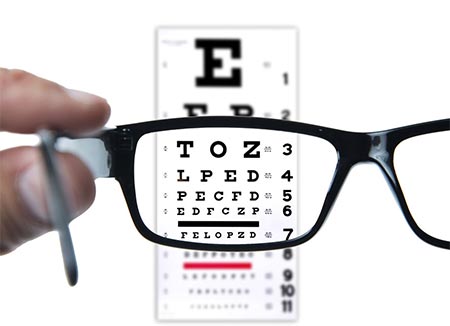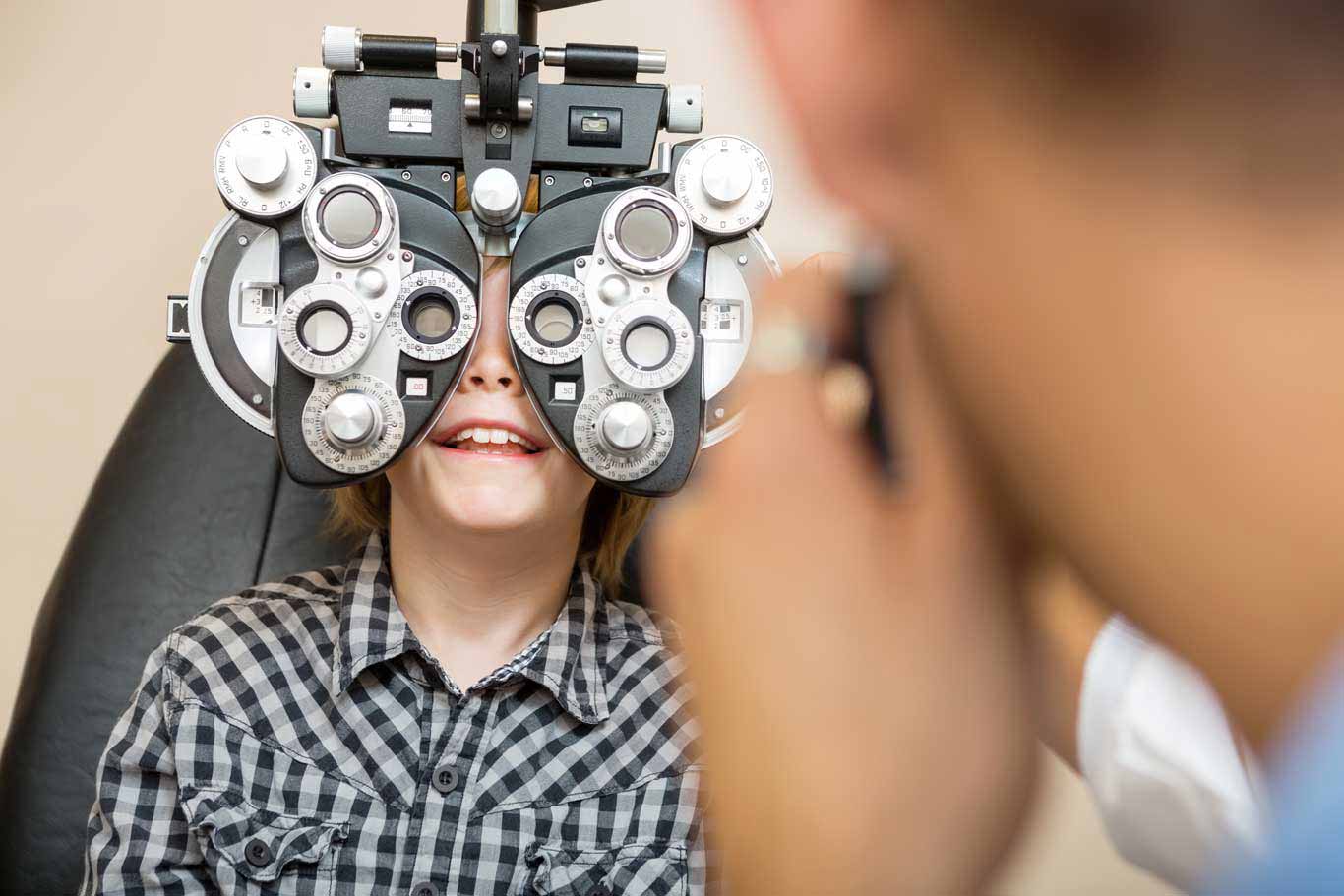Montgomery Eye Doctor: Personalized Eye Treatment and Vision Providers
The Significance of Routine Eye Tests: Insights From an Experienced Ophthalmologist
Normal eye examinations work as an important element of health care that prolongs past simple vision modification. A seasoned optometrist can give understandings right into exactly how these examinations not only discover typical eye conditions however likewise reveal underlying health issues that might or else go undetected. The quiet development of conditions such as glaucoma and macular degeneration highlights the necessity of early discovery. Understanding the frequency and value of these evaluations can ultimately affect one's lasting wellness trajectory, increasing the concern of how frequently people should prioritize their eye wellness in the context of total wellness.
Benefits of Normal Eye Exams
Although several people may overlook the relevance of regular eye tests, these analyses play an important duty in preserving general health and health. Routine eye exams serve not just to assess vision however additionally to detect very early signs of systemic wellness concerns, consisting of diabetes and high blood pressure. By identifying these conditions at their beginning, individuals can receive prompt treatments, significantly enhancing long-term results.
In addition, eye exams can assist in keeping track of existing health and wellness concerns, guaranteeing that any type of adjustments in vision or eye health are immediately resolved (optometrist). The assessments permit tailored recommendations relating to glasses, way of living adjustments, and protective steps against prospective eye pressure or damages
Beyond physical wellness, the benefits of normal eye examinations include boosting quality of life. Improved vision helps with much better performance in everyday tasks, from reviewing to driving, thereby contributing to greater self-reliance and safety and security. Ultimately, focusing on eye exams fosters a proactive strategy to wellness monitoring, encouraging people to organize their wellness. Regular check-ups are a vital component of a comprehensive healthcare technique, guaranteeing that both vision and overall wellness are maintained throughout life.
Common Eye Conditions Detected
Regular eye tests are critical in detecting a selection of common eye conditions that can considerably impact vision and total wellness. Among one of the most widespread problems determined during these assessments are refractive mistakes, including myopia (nearsightedness), hyperopia (farsightedness), and astigmatism. These conditions often materialize as blurred vision and can be quickly corrected with prescription glasses or get in touch with lenses.
An additional common concern is glaucoma, a group of eye conditions that damage the optic nerve, frequently connected to boosted intraocular pressure. Early discovery is crucial as it can prevent irreparable vision loss.
Age-related macular degeneration (AMD) is one more significant condition that influences central vision, specifically in people over 50. Lastly, diabetic person retinopathy, a difficulty of diabetes, can bring about extreme vision impairment if not kept an eye on consistently. Through extensive eye tests, these problems can be recognized early, allowing for timely management and treatment to preserve vision and enhance quality of life.
Significance of Early Detection
Very early discovery of eye problems plays an essential role in protecting vision and preventing considerable health problems. Lots of eye diseases, such as glaucoma, diabetic retinopathy, and age-related macular degeneration, can advance silently without obvious symptoms in their early phases. By the time signs and symptoms manifest, permanent damage might have taken place, bring about long-term vision loss.
Routine eye exams help with very early diagnosis, enabling prompt intervention and therapy. As an example, treating raised intraocular stress can prevent the start of glaucoma, while handling blood sugar degrees can significantly minimize the danger of diabetic person retinopathy. Furthermore, problems like cataracts can be successfully managed with medical treatment when determined early.

Exactly How Commonly Should You Go To?
Establishing the frequency of eye tests is important for keeping optimal eye health and wellness and other vision. The basic referral for adults is to have an extensive eye examination every one to two years, depending upon private risk elements and age. For people matured 18 to 60, a test every 2 years is typically sufficient if no vision troubles are existing. Nevertheless, those over 60 need to take into consideration annual exams, as the risk of age-related conditions increases considerably.
Individuals with certain danger factors, such as a family members background of eye condition, diabetes mellitus, or existing vision issues, may require more constant evaluations. Youngsters ought to have their very first eye test at 6 months of age, followed by added examinations at age three and before getting in institution. Regular check-ups throughout youth are vital as vision can change swiftly during developmental years.
Inevitably, the frequency of visits need to be tailored to every individual's situations, consisting of lifestyle, work dangers, and any type of pre-existing eye conditions. Consulting with an eye care professional can provide individualized recommendations, ensuring that your eye Continue wellness is regularly kept an eye on and maintained.
Tips for Your Eye Test
Preparing for your eye test can enhance the performance of the go to and make certain a complete assessment of your eye wellness. To maximize your time with the eye physician, it is crucial to gather relevant information prior to your consultation. Start by assembling a listing of any medicines you are presently taking, including non-prescription drugs and supplements, as these can affect eye wellness.
Furthermore, document any kind of symptoms you have actually experienced, such as blurred vision, discomfort, or frustrations. This details will certainly aid your optometrist in diagnosing possible issues. If you put on glasses or call lenses, bring them along, even if you do not use them frequently. This will certainly aid the doctor evaluate any changes in your vision.
It is also valuable to have a family members history of eye conditions available, as hereditary elements can add to your eye wellness. Lastly, take into consideration arranging your test temporarily when you are much less hurried, permitting you to ask concerns and discuss your concerns extensively. By preparing adequately, you guarantee that your eye examination is effective and that your eye doctor has all the needed her response details to provide the ideal care possible.

Verdict
Normal eye exams play a critical function in maintaining both vision and general wellness. Eventually, prioritizing detailed eye assessments adds substantially to the preservation of vision and the enhancement of quality of life, underscoring the necessity of regular eye care in preventative health care strategies.
Normal eye examinations are crucial in finding a variety of usual eye conditions that can dramatically impact vision and total health and wellness.Determining the frequency of eye exams is essential for keeping ideal eye health and vision.Preparing for your eye test can enhance the performance of the browse through and make sure a thorough examination of your eye wellness (optometrist). By preparing appropriately, you ensure that your eye test is productive and that your eye doctor has all the required details to offer the best care possible
Inevitably, prioritizing detailed eye analyses contributes significantly to the conservation of vision and the renovation of quality of life, underlining the necessity of routine eye care in preventative medical care approaches.